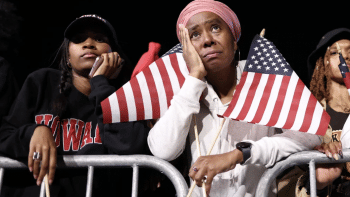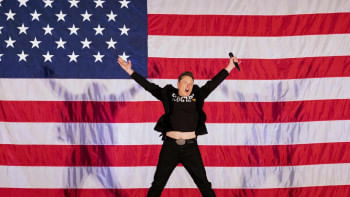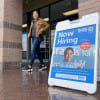Of Gulliver’s travels in America: A satire on the paradox of democracy

After years of hibernation, Gulliver remains haunted by memories of the Houyhnhnms—their unyielding reason and moral certitude, albeit conversely lacking the tragic duality of humans. Seeking solace, he clings defensively to the adage, "To err is human, to forgive divine." Yet, driven by curiosity and a rekindled sense of adventure, he embarks on a fifth voyage—this time to the United States of America, the self-proclaimed "land of the free" and a beacon of modern democracy.
What Gulliver finds is far from a utopia of liberty or reasoned governance. Instead, he encounters a deeply polarised society fractured along colour-coded lines: "blue states" as liberal bastions, "red states" as conservative strongholds, and seven pivotal "swing states" determining the course of an increasingly ungovernable union. Political allegiances ossify into tribal identities under the totemic figures of the elephant and the donkey. The nation's governance devolves into theatre, with democracy resembling absurdity. Detractors label this system "disinformocracy" and "disinfotainment," an uncanny echo of the fragmented and performative politics Gulliver witnessed in Lilliput.
In the red realm, governance and entertainment blend seamlessly. The leader reigns as a populist demagogue, wielding rhetoric like a master actor commanding the stage. Nostalgia for an imagined past becomes the opiate of the masses. Policies are props, and unity thrives on disdain for the "other side." Gulliver recalls Lilliput, where leaders bickered over trivialities while existential threats loomed. The red leader's charisma, weaponised by a complicit media, obscures an unsettling truth: governance has become secondary to spectacle.
In the blue realm, ideals clash with dysfunction. A leader of hope wrestles with gridlock as lofty aspirations flounder against entrenched opposition. Disillusioned citizens lament the collapse of progress and the erosion of trust. For Gulliver, it echoes Laputa, where abstract pursuits overshadowed practical concerns. The dream of a better tomorrow collapses under today's dysfunction, leaving him despondent.
Both realms expose systemic failures transcending partisan divides. Gulliver observes government shutdowns—crises born of political posturing rather than necessity. Essential services grind to a halt while political elites remain untouched. It is a modern folly, recalling both the petty disputes of Lilliput and the detachment of Laputa. Gulliver's bewilderment grows as he witnesses the political theatre that accompanies such crises, where leaders perform more for cameras than for the people they claim to represent.
The paradox of swing voters
Gulliver is equally baffled by the veneration of swing voters. In this polarised nation, their fleeting influence masks systemic inertia. Between elections, their concerns vanish, and their empowerment proves illusory. Gulliver likens this obsession to Brobdingnag, where the king's perspective was distorted by his immense size. America inflates the importance of swing voters while neglecting the broader electorate. This paradox underscores the superficiality of representation in a system that privileges narrow margins over the collective voice.
Distorted institutions
The Electoral College further distorts democracy. Candidates win despite losing the popular vote, a contradiction that baffles Gulliver. Similarly, the Supreme Court, once a guardian of the constitution, has become a partisan battleground. Gulliver, recalling Laputa's absurdities, wonders how institutions intended to stabilise democracy exacerbate division instead. The idea of checks and balances becomes a tragic irony when the very mechanisms designed to prevent tyranny enable it through procedural exploitation.
Even more perplexing is the inertia surrounding reforms to address these distortions. Gulliver observes countless debates and proposals, yet action remains elusive. He likens this to the Yahoos' endless squabbles over inconsequential matters, where immediate self-interest overrides collective progress. The enduring nature of these flaws suggests not just systemic dysfunction but an unwillingness to confront uncomfortable truths.
The media's role
The media's pervasive role in shaping political reality strikes Gulliver as particularly alarming. Far from neutral arbiters, media outlets amplify division and sensationalism, blurring truth and fiction. Leaders perform for cameras, crafting personas tailored to echo chambers. Citizens, inundated with information, struggle to discern reality in a hyperreal world. For Gulliver, this recalls Jean Baudrillard's concept of the simulacrum, where representations replace reality. The media, once a platform for democratic discourse, now manufactures consent and amplifies discord. The cacophony of conflicting narratives leaves the populace disoriented, trapped in a cycle of outrage and misinformation.
Everyday paradoxes
In his travels, Gulliver observes how democracy's paradox manifests in everyday life. Liberty and equality coexist uneasily with systemic inequality and exclusion. Public discourse is saturated with performative outrage, drowning meaningful dialogue. Gulliver reflects on the Houyhnhnms' unwavering rationality and contrasts it with humanity's capacity for both profound empathy and destructive folly. The democracy he encounters in America is a simulacrum of its foundational ideals, embodying the contradictions inherent in the human condition.
Economic inequality further deepens the paradox. Gulliver notes vast disparities in wealth, where opportunity is heralded as universal but access remains deeply unequal. Homelessness thrives in cities of abundance, and healthcare is a privilege rather than a right. The contrast between the rhetoric of the American Dream and the lived realities of its citizens leaves Gulliver questioning whether democracy can thrive amid such structural inequities. He recalls the Laputans' detachment from material concerns, juxtaposing it with America's obsession with wealth as a measure of success.
Reflections on the future
As Gulliver prepares to leave, he reflects on the paradox of American democracy. The founding ideals of liberty, equality, and justice are overshadowed by division, manipulation, and dysfunction. Jean-Jacques Rousseau's warning—"Man is born free, but everywhere he is in chains"—resonates as he contemplates the chains binding the "land of the free." Even swing voters, far from embodying democratic ideals, are bound by the spectacle that constrains the nation. Gulliver wonders if this system, adept at manufacturing myths, risks exporting dysfunction instead of democracy.
Finally, Gulliver turns inward. His travels, from Lilliput's factionalism to the Houyhnhnms' cold perfection, underscore humanity's struggle to balance reason, diversity, and passion. In America, the cacophony of voices and ambitions highlights democracy's challenge: navigating between extremes. Exhausted, Gulliver retreats to his cabin aboard the ship bound for England and falls into a deep sleep.
Half-awake, he finds Jonathan Swift seated by his bedside. Listening to Gulliver's narrative, Swift presses him, "How could you have missed the genocide of Native Americans, the enslavement of African-Americans, and the fractures intersecting ethnicity, race, class, gender, and religion?" Swift adds, "The country optimises 'othering' while erasing alterity. They profess 'Think globally, act locally' but practise the reverse." Gulliver, briefly dumbfounded, asks, "How many fractures can humans endure and still survive?" He qualifies the terms United and e pluribus unum with a cautious caveat emptor.
When Gulliver fully awakens, Swift is gone, leaving behind only the weight of his words. As America fades into the horizon, Gulliver reflects on its contradictions: its greatest strength and gravest flaw. He muses that democracy, like humanity, is an unfinished project—a chasm between aspirational ideals and unvarnished reality. "The state of the union is strong, albeit imperfectly perfect and perfectly imperfect," he thinks as the ship approaches England.
Dr Faridul Alam writes from New York City, US.
Views expressed in this article are the author's own.
Follow The Daily Star Opinion on Facebook for the latest opinions, commentaries and analyses by experts and professionals. To contribute your article or letter to The Daily Star Opinion, see our guidelines for submission.

 For all latest news, follow The Daily Star's Google News channel.
For all latest news, follow The Daily Star's Google News channel. 









Comments